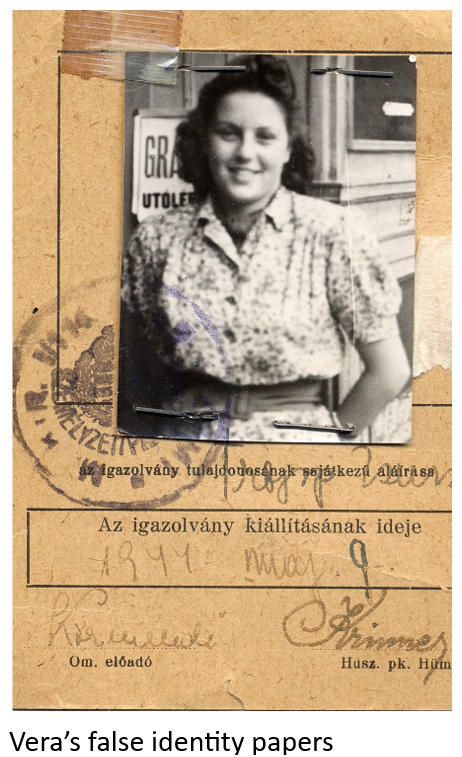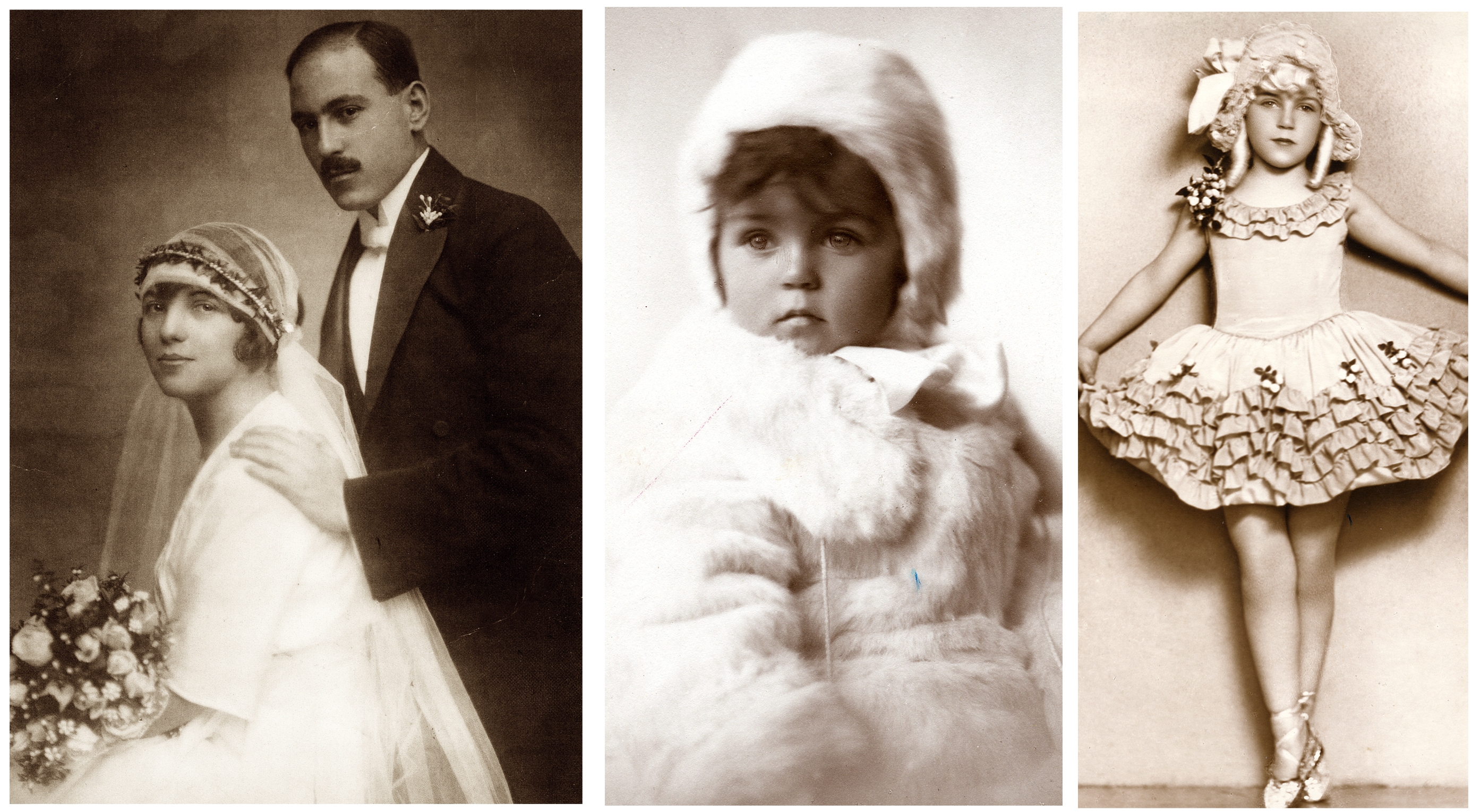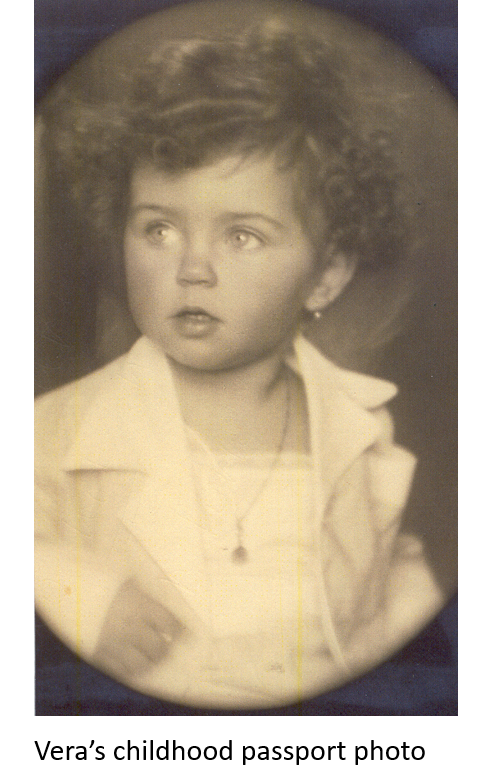Vera Schey
" Don’t ever, ever use the word ‘hate’, because hate is the reason that 6 million Jews, 1.5 million children, died. Have tolerance because we are all born alike. Tolerance is the big word to remember, and hate is the one to forget."
Name at birth
Vera Laufer
Date of birth
08/02/1922
Where did you grow up?
Budapest, Hungary
Name of father, occupation
Julius,
Banker
Maiden name of mother, occupation
Elizabeth Faeger,
Homemaker; in Banking before Married
Immediate family (names, birth order)
Parents and Vera
How many in entire extended family?
Two cousins, three uncles, and three aunts
Who survived the Holocaust?
My mother and me, one uncle and one cousin
Before the war, I was in a German school in Budapest, which was the best school in the area. The German and Hungarian people mixed; there was no anti-Semitism in the school, and we were pretty much free to do what we wanted.
When the war started, the agreement was that the Nazis would not occupy Hungary. On March 14, 1944, while I was coming back from an outing in the countryside, we saw soldiers and tanks, and trucks full of ammunition coming across the bridges to begin the occupation. It was a very frightening feeling, even though we didn’t know about the concentration camps. I know this is hard to believe these days, but we had only censored radio broadcasts. We knew about the ghettos, and had heard that friends and relatives in small villages were being taken to labor camps, but only when they were able to write to us. Hungary fell without a shot being fired, no resistance, nothing.
After that, new rules were posted daily. The rules would appear on walls of apartment houses, on trees and buildings. It started with turning in all of our jewelry and valuables including bicycles and radios. Luckily, some of our gentile neighbors took and hid some of our things. A couple of days later, we picked up the phone and the phone lines had been cut. My mother was more upset by this than by turning in all of our valuables. She said to me, “Now we are cut off from the rest of the world.”
Next came the order to wear a yellow star on our garments, you couldn’t be seen on the street without it. The Hungarian Nazis were growing and it was not possible to defy these orders. Then the order came that all Jews had to move to one area of the city, called the Yellow Star Houses. These were large apartment buildings, but each family was allotted one room, regardless of the size of the family. We had three rooms, with one bathroom and one kitchen, with about 15 people living together. Next came strict limits on the number of hours or days that we could be on the street to do our chores and errands.
Next, all women between the ages of 15 and 65 or 70 were ordered to gather near the football field. By this time, all of the men were in slave labor in the work camps. That is when I knew that it was time to go into hiding. This meant that we had to get false legal papers proving that you and your parents and grandparents were Christian. I had a lot of Chutzpah, and I was able to get papers proving that I was Suzanna Trop. I was hidden by a Christian friend on the outskirts of town. The danger was that the neighbors would question who I was, and where I was from, and why was I staying here. When this began, it would be time to move. Between March of 1944 and February of 1945, I was in three different places, and my mother was in four different places.
I requested, as a fleeing Christian, if I could rent an apartment that Jews had left behind. This was the “top of the Chutzpah” when my mother and I moved into one of those apartments. This was going well, but as the Russians advanced towards the Danube, we had to go into the air raid cellar frequently. One day when we went down there, a man who lived in the building started asking questions. As it ended up, he was from the village that my papers said I was from! I knew that he would begin to question me about people and places there, so I pretended to be sick, and the next morning, my mother and I were on the run again.
Our last hiding place was with a cousin who had married a gentile. Eight or nine people were already hiding there, he took an unbelievable risk. There was no heat, no food, and no water left anymore. At one point, two young Jewish men had to hide in a refrigerator in the building when the soldiers came looking. No papers would save them, because if they were Hungarian, they should have been in the Army. The Hungarian Nazis were fooled by our papers, and they left.
In February of 1945, the Russians liberated Hungary. My mother and I went back to our old apartment, which had been kept for us by the concierge of the building. The Russian “liberators” were horrible in the beginning. They stole, and raped, and to talk to them was impossible, if you were 70 or 20 years old, it didn’t make a difference to them if they wanted to rape you. In some ways, they were worse to us than the Germans were.
Name of Ghetto(s)
Where were you in hiding?
First, in a small town on the outskirts of Budapest called Pestujhely, then in Budapest
When did you come to the United States?
October 1946
Where did you settle?
My husband and I came to the United States on boat, the Isle de France. We came to live with his parents in Kalamazoo, Michigan
Occupation after the war
I owned a cosmetics store in Budapest. When I came to the United States, I worked promoting perfumes, then owned a knitting mill in Montreal.
When and where were you married?
April 1946 in Hungary
Spouse
Leslie,
Owned and operated Hansel and Gretel shoe store in Birmingham
Children
Judy, high school counselor Tommy, attorney
Grandchildren
Three granddaughters
What do you think helped you to survive?
Chutzpah and Luck
What message would you like to leave for future generations?
Don’t ever, ever use the word ‘hate’, because hate is the reason that 6 million Jews, 1.5 million children, died. Have tolerance because we are all born alike. Tolerance is the big word to remember, and hate is the one to forget.
Interviewer:
Charles Silow
Interview date:
12/29/2009
To learn more about this survivor, please visit:
The Zekelman Holocaust Center Oral History Collection
https://www.holocaustcenter.org/visit/library-archive/oral-history-department/schey-vera/
https://www.holocaustcenter.org/visit/library-archive/oral-history-department/schey-vera/
The Voice/Vision Holocaust Survivor Oral History Archive, University of Michigan
http://holocaust.umd.umich.edu/schey/
http://holocaust.umd.umich.edu/schey/
Experiences
Survivor's map



